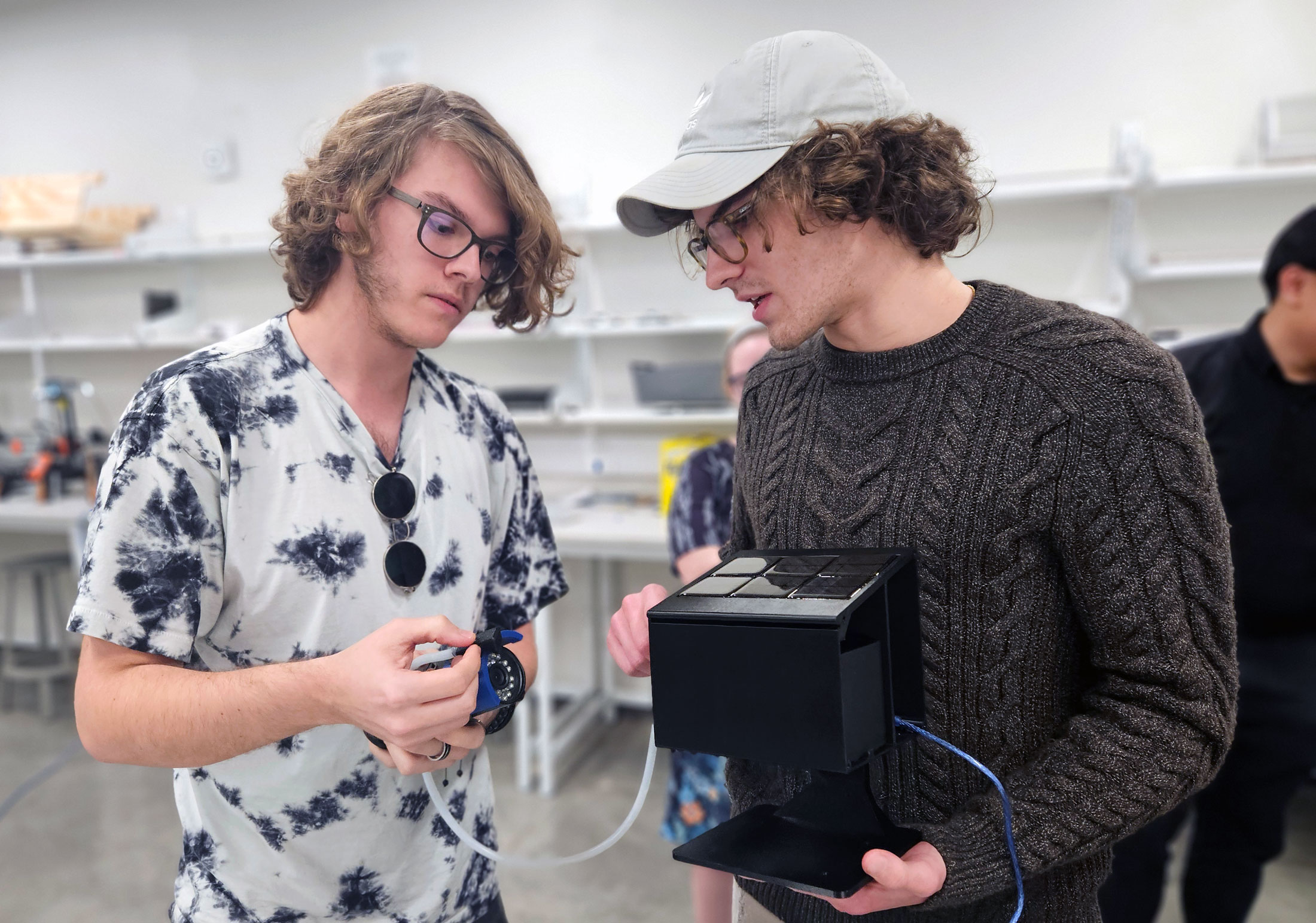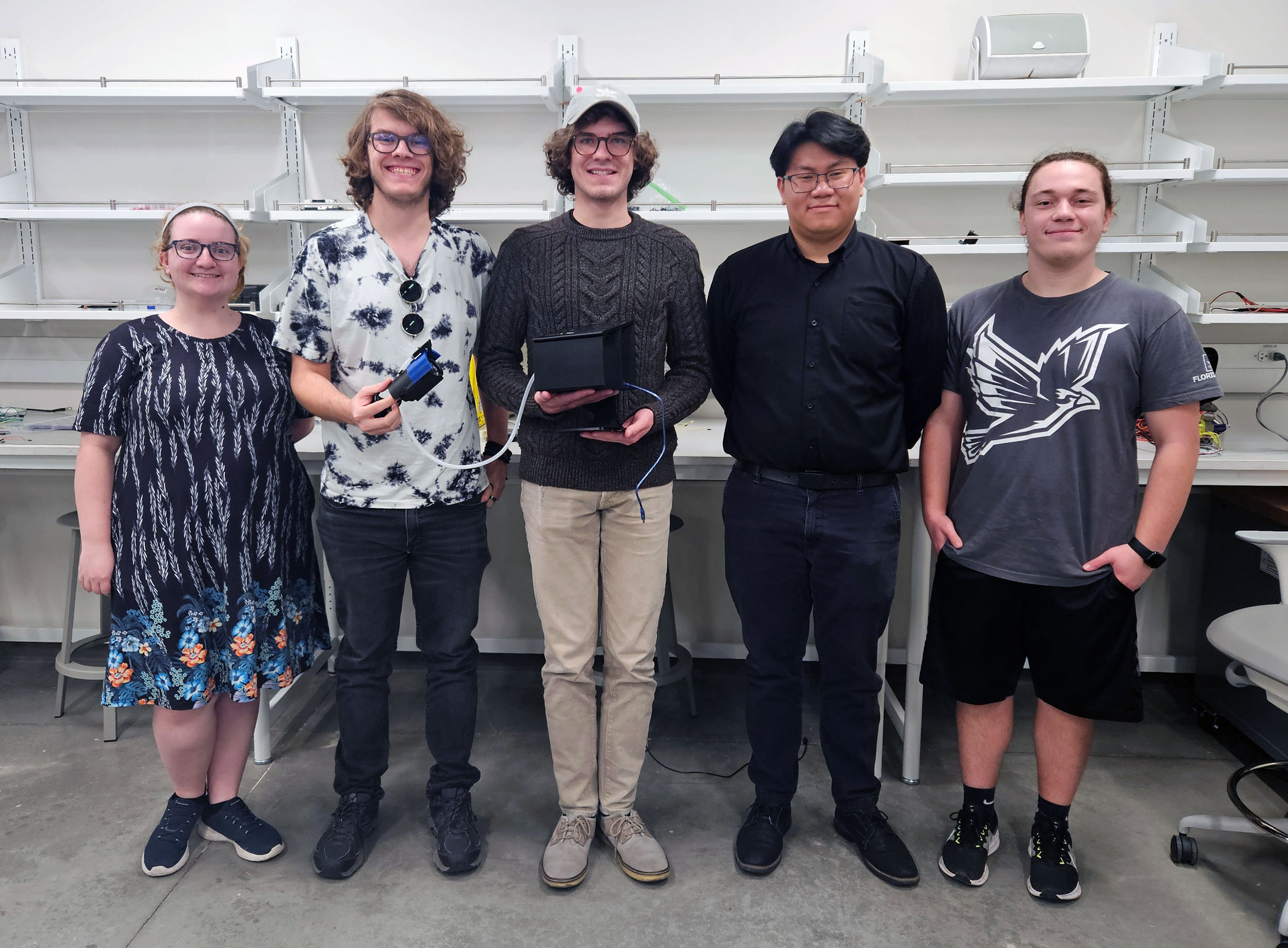
Florida Polytechnic University seniors Addam Ben-Abdallah, an engineering physics major, and Matthew DeCicco, a mechanical engineering major, display the automated camera-cleaning device designed and built by their interdisciplinary capstone team for industry sponsor Patrick Space Force Base.
A tedious monthly job at Patrick Space Force Base may soon be a thing of the past thanks to a project by an interdisciplinary team of Florida Polytechnic University senior capstone students.
The team is designing and building a self-cleaning device for the approximately 1,000 security cameras located at the Space Coast base.
“Due to being on the coast of Florida, the cameras get salt deposits on their lenses,” said Matthew DeCicco, a mechanical engineering major who is leading the project. “Currently, they have employees go out and take a ladder to clean the cameras, so this project is to create a solution that will clean those cameras automatically.”
The capstone project is sponsored by the Forge at Patrick Space Force Base. The Forge is designed as an innovation program.
“The goal is for our solution to be easily produced,” DeCicco said. “Our prototype will be 3D printed, but ideally this would be produced out of sheet metal.”
After thoroughly researching and selecting materials, controls, power sources, pumps, nozzles, cleaning solutions, and more, the team created a working prototype that is both simple and effective.
Broadly, the device will collect rainwater in a reservoir and pump it back out to clean the cameras.
More specifically, the solar-powered device will be operated by a single American-made microchip, said Derek Olszowy, who is majoring in computer engineering. The chip is widely available and meets the nation’s requirements that military materials be made in the U.S.
The protected and collected water will be treated with a concentrated additive similar to chlorine or the active chemical in antibacterial cleaner.
“It should clean any bacteria and clean out the system every time it is sprayed,” DeCicco said. “Ideally, it would be something dry, so an employee can go up every three years to refill it or it can last the life of this product – our sponsor is thinking three to five years.”
It will all be housed in a simple modular structure that can be mounted on a wall or a roof.
With the Space Force base as a sponsor, the group had to look beyond the mechanics of how to create and build the device.
“The sponsor initially had safety concerns because this is the military and it involves cameras, but we thought the best way to eliminate that was to have an isolated system running on solar so we’re no longer running on the camera’s power and we’re self-contained,” DeCicco said.
The team is hopeful the sponsor will not only be impressed with the device but decide to implement it.
“It’s cool to think our device might keep Space Force cameras clean and keep the base safer,” DeCicco said.
“It will be like we contributed something useful to the military and an actual difference is being made in the real world,” Olszowy added.
An interdisciplinary team of Florida Polytechnic University senior capstone students
is working on a project sponsored by Patrick Space Force Base to design and build
an automated camera-cleaning device for its 1,000 outdoor security cameras. From left,
the team and their majors are Emma Scott, mechanical engineering; Addam Ben-Abdallah,
engineering physics; Matthew DeCicco, mechanical engineering; Leslie Ngo, computer
science; and Derek Olszowy, computer engineering.
Contact:
Lydia Guzmán
Director of Communications
863-874-8557